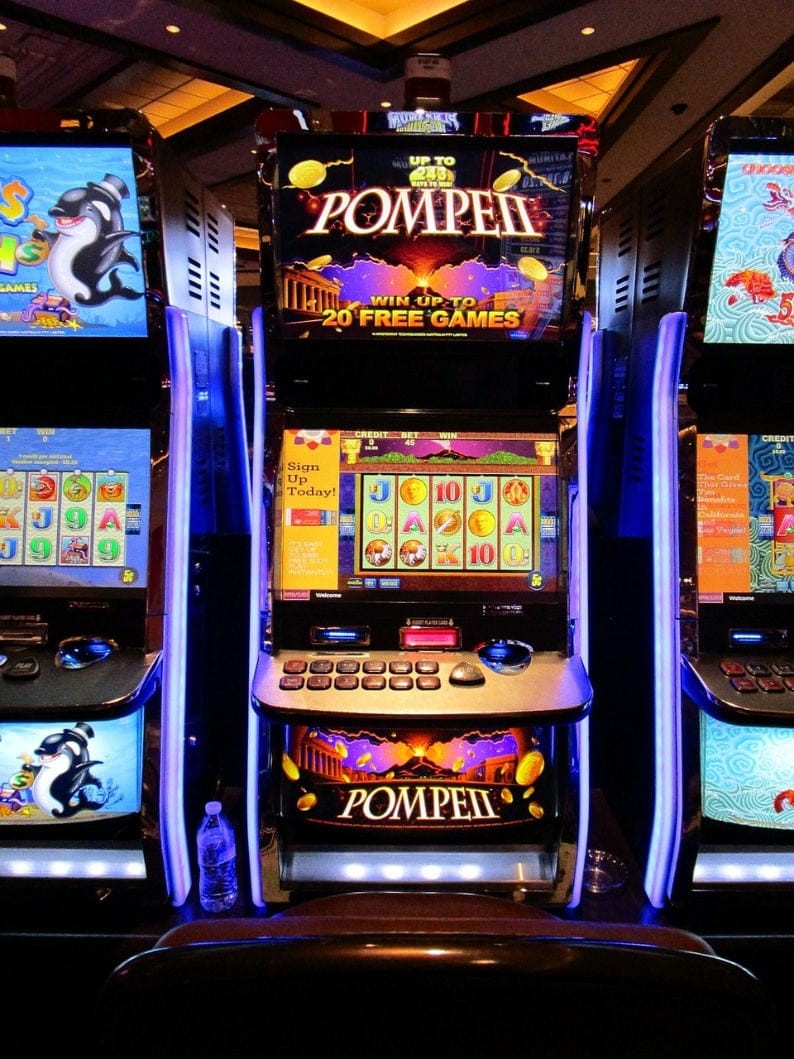
Swedish Casino Dealer Training vs Las Vegas Standards: Professional Development Compared
Sweden and Las Vegas represent two very different worlds of casino operations and professional development. One prioritizes structure, social responsibility, and standardized training, while the other thrives on volume, speed, and personality-driven service. For anyone considering a career on the gaming floor, understanding how these systems differ is crucial to choosing the right environment and building long-term success. This comparison explores how regulation, training, and workplace culture shape the dealer's journey in both markets.
Regulatory Frameworks and Player Protection
Sweden: Spelinspektionen, Duty of Care, and Spelpaus Integration
In Sweden, dealer education begins with a solid understanding of compliance and player protection. Spelinspektionen, the national gambling authority, mandates comprehensive training in responsible gaming and operational integrity. Dealers learn to recognize early signs of problem gambling, conduct discreet welfare checks, and use official reporting channels to document interventions. The national self-exclusion system, Spelpaus, is fully integrated into onboarding and daily operations. Staff are trained to verify a player's exclusion status respectfully and act quickly when intervention is needed. The Swedish model treats responsibility as part of customer service, merging care with professionalism to uphold the country's high consumer protection standards. Many licensed operators, such as Slotzy, align their internal training programs with Spelinspektionen's guidelines to ensure every team member meets the same level of accountability and awareness.
Las Vegas: Nevada Gaming Control and Property-Level Oversight
In Nevada, regulation is handled by the Nevada Gaming Control Board (NGCB) and the Nevada Gaming Commission (NGC), which oversee licensing, operations, and enforcement. Dealer training is highly procedural, designed to match the fast pace and high volume of Las Vegas gaming floors. Each casino maintains its own manual of house rules and compliance protocols, ensuring every game runs smoothly under heavy surveillance. Dealers learn how to pause games for audits, handle chips and cash with precision, and escalate suspicious activity through defined reporting chains. The environment demands situational awareness, teamwork, and the ability to maintain composure under constant scrutiny.
AML, KYC, and Verification Practices
Anti-money laundering (AML) and Know Your Customer (KYC) rules are integral in both systems but taught through different lenses. In Sweden, these obligations sit within a broader social responsibility framework. Dealers are trained to identify unusual betting patterns and escalate concerns as part of a collective duty of care. In Nevada, AML education focuses on process efficiency and documentation accuracy. Dealers work closely with cage teams and surveillance, learning federal compliance standards under the Bank Secrecy Act. Age verification is strictly enforced in both regions, though Sweden's fully digital approach contrasts with the high-volume ID checks common on the Las Vegas Strip.
Entry Requirements, Licensing, and Training Models
Eligibility and Background Screening
Integrity is a shared foundation. Sweden requires candidates to pass criminal background checks, confirm legal work status, and often demonstrate fluency in both Swedish and English. In Nevada, applicants undergo fingerprinting and a detailed background review before receiving a gaming registration card. English proficiency is critical for guest communication, but multilingual ability is an advantage in both hubs. While Sweden's recruitment is typically formal and structured, Las Vegas hiring can move quickly, with open-call auditions and on-the-spot assessments during peak periods.
Licensing Processes and Costs
Licensing in Sweden follows a national standard. Employers handle much of the administration, and approvals take several weeks as regulators verify documents and training credentials. Fees are modest and often covered by the casino. In Nevada, candidates apply directly for work cards and pay associated fees themselves. Approvals are faster, but applicants must visit multiple offices and complete property-specific clearances. The contrast lies in Sweden's centralization versus Nevada's agility, each balancing consistency with operational speed.
Training Pathways: Public Programs vs In-House Academies
Sweden's training model is anchored in vocational education. Public institutions or authorized partners offer multi-week courses covering math, game mechanics, legal compliance, and customer care. Graduates join licensed venues after passing standardized exams. In Las Vegas, training is primarily in-house or delivered through independent dealer schools. Courses are shorter and more intense, focusing on live-table simulation and property-specific procedures. Trainees start with blackjack, move into roulette, and later qualify for baccarat or specialty games. The American model prizes adaptability and real-time experience, while the Swedish system emphasizes foundation and steady progress.
Curriculum and Skill Development
Table Game Fundamentals
Both markets share a core syllabus blackjack, roulette, baccarat, and poker variants but priorities differ. Sweden builds competence evenly across major games before expansion. Las Vegas academies, however, prioritize the fastest-moving titles first. Dealers perfect blackjack early, followed by high-tipping games like craps or specialty poker. Poker room positions in Nevada often have dedicated pathways, while Swedish venues blend all game types into broader pit operations.
Math, Pace, and Precision
Swedish programs stress deliberate accuracy over speed. Trainees practice until error rates drop to near zero and learn to document discrepancies meticulously. In Las Vegas, efficiency is key. Dealers are expected to maintain rhythm while handling side bets, guest interactions, and payouts simultaneously. Training emphasizes multitasking under pressure tracking bets, managing chips, and maintaining eye contact with players all while keeping games error-free. Those looking to experience this fast-paced environment without monetary risk can explore free play casino games that simulate the dealer experience and game flow in a risk-free setting.
Customer Interaction and Conflict Handling
Cultural tone shapes interaction styles. Swedish dealers are trained to balance professionalism with empathy, keeping conversations friendly but focused on procedure. Tipping is modest and regulated through pooled systems. In Las Vegas, charisma is part of the job. Dealers learn to read the room, engage guests confidently, and maintain tempo even in heated moments. Tipping (tokes) forms a major part of income, so maintaining rapport is financially vital. Both markets include de-escalation training, teaching staff how to handle disputes calmly and call for support when needed.
Technology and Compliance Tools
Technology defines the modern casino floor. Swedish dealers use digital terminals to check self-exclusion lists, verify IDs, and record incidents. Systems are integrated across venues, ensuring consistent oversight. Las Vegas casinos rely on smart shoes for roulette, card shufflers, and advanced surveillance analytics. Dealers must understand how to interact with automated systems and report alerts correctly. In both markets, training reinforces how to merge tech use with human observation to maintain control and integrity.
Performance Assessment and Ongoing Development
Auditions and Practical Evaluations
Initial skill tests in Sweden take place in controlled classroom environments. Candidates demonstrate card handling, payout accuracy, and procedural awareness under examiner supervision. In Las Vegas, auditions happen in live or simulated pit settings, where speed, communication, and table presence are evaluated in real time. Supervisors track metrics like payout accuracy, tempo, and customer feedback during probationary periods in both markets.
Certification and Cross-Training
Swedish casinos follow structured certification ladders tied to game types and experience levels. Passing each milestone increases pay and unlocks access to higher-stakes tables. Cross-training is planned to align with operational needs. In Las Vegas, movement between games happens faster and is often performance-driven. Dealers who master blackjack or roulette quickly may be promoted to higher-limit pits or tournaments. Both systems document qualifications meticulously to ensure regulatory compliance and career progression.
Incident Reporting and Quality Oversight
Sweden's regulatory environment demands precise documentation. Dealers learn to complete standardized reports for errors, guest disputes, or suspicious activity. Nevada properties combine internal audits with random mystery shopper evaluations, scoring dealers on service quality and procedural consistency. In both regions, reliable paperwork and clear communication with surveillance teams are critical to reputation and advancement.
Compensation, Scheduling, and Career Growth
Pay Structure and Tipping Dynamics
Swedish dealers earn a consistent salary with minimal dependence on tips. Some venues pool service charges or small gratuities evenly. The focus is on stability and professionalism rather than performance-based earnings. In contrast, Las Vegas dealers often earn modest base pay but can multiply their income through tips. This dynamic rewards fast, personable service and strong guest relationships. Skill, patience, and charm directly affect take-home pay.
Scheduling and Work Conditions
Sweden offers structured schedules, predictable rotations, and strong labor protections under collective agreements. Regular breaks and defined overtime policies support work-life balance. Las Vegas shifts revolve around demand cycles; nights, weekends, and holidays are the norm. Union agreements in major resorts help secure benefits and job stability, but flexibility remains part of the lifestyle. The trade-off between predictability and earning potential is one of the clearest contrasts between the two systems.
Advancement and Long-Term Paths
Swedish dealers advance through defined stages: junior dealer, senior dealer, inspector, and manager. Promotions depend on certifications, evaluations, and tenure. Opportunities also exist in compliance, training, or operations management. In Las Vegas, dealers can move into dual-rate roles that combine floor duties with supervisory responsibilities. Successful dual-rate experience opens the door to pit boss, table games manager, or even training academy positions. Career mobility depends as much on attitude and versatility as on technical skill.
Choosing the Right Path
Professional Identity and Lifestyle Fit
The Swedish model suits professionals who value structure, public responsibility, and long-term security. It offers a balanced work environment with clear rules and predictable advancement. The Las Vegas model appeals to those who thrive in high-energy, performance-driven atmospheres where effort and charisma translate directly into earnings. Both require precision, integrity, and teamwork but reward different types of motivation.
Transferable Skills and International Mobility
Core dealing skills, math fluency, attention to detail, and customer service translate easily between markets. However, adapting requires awareness of local regulations and etiquette. A Swedish-trained dealer entering Las Vegas must adjust to tipping culture and higher game speed, while a Vegas dealer moving to Sweden must demonstrate mastery of compliance and responsible gaming protocols. Documentation of certifications and clean licensing histories smooths these transitions.
Building a Winning Application
Regardless of destination, preparation is key. Candidates should bring proof of training, clean background checks, and a polished audition performance. In Sweden, emphasize responsible gaming expertise and procedural accuracy. In Las Vegas, highlight speed, personality, and multi-game flexibility. Practice table mechanics until they are effortless and learn the property's unique rules before stepping onto the floor. A well-prepared candidate who understands both the business and the guest experience will stand out in any casino environment.
Both Sweden and Las Vegas produce exceptional dealers, shaped by their distinct cultures and operational goals. One creates disciplined, safety-oriented professionals; the other cultivates high-energy entertainers with technical precision. For ambitious dealers, learning from both worlds offers the best foundation for a global career.
Related Free Learning Hubs
Vegas Aces offers free courses, PDF manuals, charts, and more on dozens of casino games to help you advance your casino career.
Related Articles
Sweepstakes Casinos: Why Players Are Choosing Social Gaming in 2026
Posted Feb 18th, 2026
Thrill Seekers vs. Strategists: Which Casino Games Match Your Personality
Posted Feb 18th, 2026
How Canadian Fans Are Pairing Game Night With Digital Casino Entertainment
Posted Feb 25th, 2026
No-Wagering Casino Bonuses in Canada: A Clearer Look at Simpler Bonus Terms
Posted Feb 25th, 2026
The Top 5 Slot Games Players Keep Coming Back to in 2026
Posted Feb 20th, 2026
Winna Casino Review What Players Should Know Before Signing Up
Posted Feb 17th, 2026
Disclosure: This article contains sponsored content.






